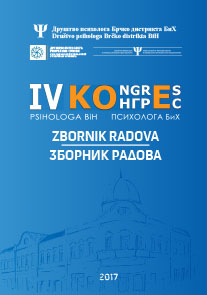Integracija ključnih kompetencija u ishode učenja
Integration of key competences into learning outcomes
Author(s): Dženana Husremović, Žaneta Džumhur, Nermin ĐapoSubject(s): School education, State/Government and Education
Published by: Logotip
Keywords: Key competencies; learning outcomes; cross-curricular;
Summary/Abstract: The competence as a construct is consisted of knowledge, skills and abilities to solve the complex tasks through mobilizing psychosocial resources (including skills and attitudes) in certain context. The key competencies are the agreed term for common learning outcomes in education in European context. Their main features are: they are cross-curricular (they are part of all subjects and activities), they are the developmental goals of the whole curriculum and they are complementar (each situation requires more than one competence in order to be solved). In order to prepare the basis for curricular reform in accordance to European requirements, The Agency for preschool, primary and secondary school conducted the research to define the key competencies for BiH and to map their existence in current curricula. One of the main goals of the research was to understand pupil’s perceptions about the importance and existence of specific competencies in educational practice, as well as to identify how they perceive them in particular subject taught in schools. 2875 pupils from primary, secondary general and vocational schools from BiH participated in the research. The instruments for data gathering were constructed based on the predefined indicators of key competencies. The results showed that pupils rank as the most important competencies the ones which are mostly present in the teaching practice; communication competencies in native and foreign languages, mathematic literacy (numeracy), IT literacy and health competence, while the least important ones were self-initiative and entrepreneurial competence and civic competence. The results also showed that the current educational process does not support cross curricular teaching, which is the main prerequisite for positioning the competencies as the developmental goal and main learning outcomes. The research showed that there is a great need for curricular reform in order to align the educational system in Bosnia and Hercegovina with European systems.
Journal: Zbornik radova Kongresa psihologa Bosne i Hercegovine
- Issue Year: 2017
- Issue No: 4
- Page Range: 299-323
- Page Count: 25
- Language: Bosnian

